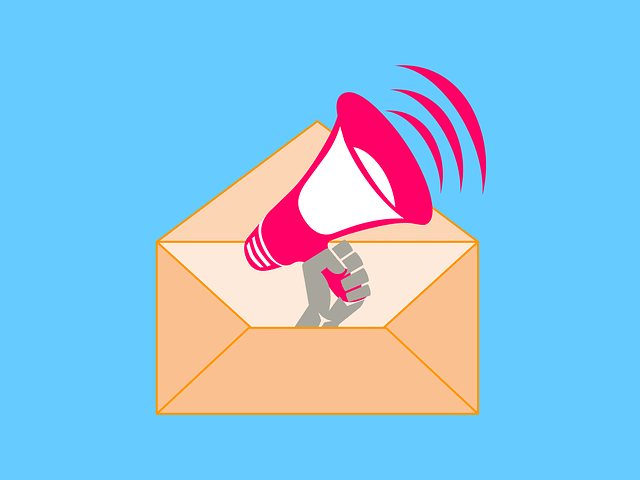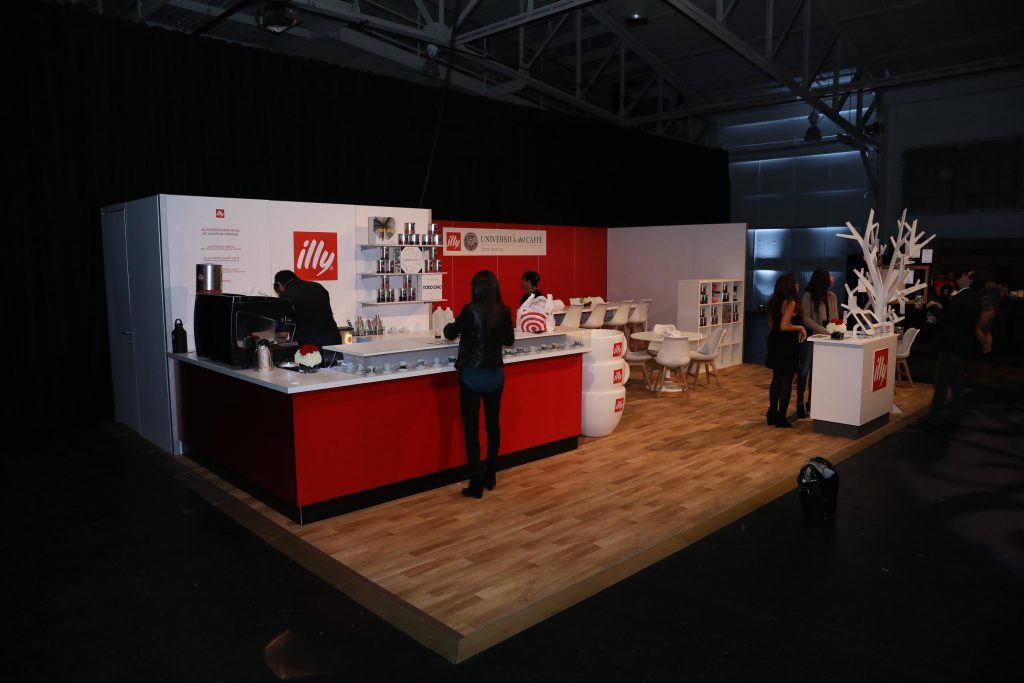Securing sponsors for an event has a huge range of potential benefits. Sponsorship can provide you with extra funds or resources to improve the event, as well as boost your event promotion. It can help your organization strengthen its ties with other businesses and with its customer base. There are plenty of benefits for the event sponsors too. Finding the right sponsors and securing a sponsorship deal is all about convincing potential sponsors that those benefits are valuable to them. If you’re asking yourself, “How do I find the right brand to sponsor my event?”, this guide to event sponsorship will help you get started.
What’s the Point of Event Sponsorship?
In an effective partnership, both the event and its sponsors can gain significant benefits from the relationship. In fact, the core of sponsorship is all about developing new relationships. Each organization that contributes—whether as a host or as a sponsor—benefits because it has the chance to form relationships with new demographics or to strengthen relationships with existing audiences.
For an event organizer like you, securing sponsors is about obtaining resources that help make the event happen. Working with one or more sponsors can provide resources your event might not otherwise have access to. For instance, a higher caliber of speaker, more education sessions, or more media coverage—and ultimately, more attendees through the door.
And your sponsors benefit from the boost in brand awareness, recognition, and reputation they get from being associated with your event.
Depending on the sponsor, a sponsorship deal might provide:
- Funds to help pay for event costs – Depending on the sponsorship deal, the funds might be earmarked for something specific, such as a high-profile speaker, or be for general use.
- Media sponsorship – Depending on the company, this might mean funds to pay for marketing materials, social media posts, or a radio or TV spot. Or it could mean a printing company or radio station donates their services. Depending on the sponsorship package, this can also function as an in-kind sponsorship deal.
- In-kind sponsorship – These companies donate services or products, rather than cash. For instance, service providers such as hotels, shuttles, or caterers might provide their services free of charge or at a reduced rate.
Whatever the sponsor provides, the result is an event that’s bigger and better than it might have otherwise been. There’s also the chance to develop an ongoing relationship that might prove beneficial at future events too.
Which Organizations Should You Approach as Potential Sponsors?
The first question to consider is where to find event sponsors. This might sound difficult, but as with many things these days, there’s an app for that:
These sites can help you locate potential sponsors and pitch your event.
Another option is the local approach. Scout the area around which you’re planning to host your event, and see if you can find one or more businesses that might be suitable partners. This can be a great way to find in-kind sponsors, such as hotels and shuttle or taxi services, which tend to be local.
The approach that means the least work for you is to hire an event planning company that offers sponsorship management. A company like ProGlobalEvents knows where to search for the most promising sponsor opportunities, so you don’t waste your time, and our team is adept at negotiating contracts between events and sponsors.
At this stage, you may also want to narrow your search by focusing on organizations that tick one or two extra boxes. You’ll get more out of a partnership if your sponsors are willing, active participants who know the value of sponsorship. Reach out to potential sponsors who:
- Are a good match for your organization’s audience demographics – You won’t choose competitors, of course, but there should be some points of overlap between the customer base of your organization and that of your sponsors.
- Have sponsored an event before – This isn’t a must, but organizations that have sponsored events in the past are likely to understand how sponsorship benefits them and how the relationship between themselves and the event organizer works.
- Are focused on event ROI – Some sponsors are only in it for the branding. But a great sponsor understands that a successful event for you means a successful event for them too. This isn’t something you’ll know about a company until you make contact, but if you get to that point, an ROI-focused sponsor will stand out from a mile away!
What Do Event Sponsors Want from a Sponsorship Package?
To attract brands to sponsor your event, you must show that they stand to benefit from the deal. It’s all about the event ROI, so you need to offer brands key benefits that align with their marketing goals.
When you reach out to potential sponsors, it’s important to establish early on what they want from the sponsorship package. The sponsor’s goals for the event will dictate how they want to market their brand, as well as whether they want to sponsor your event at all. Understanding this requires doing research beforehand: What events have they sponsored in the past? What are the selling points of their products or services?
A potential sponsor could be interested in:
Brand Awareness
This is the ability to get the brand in front of the target audience, and it’s especially attractive to new companies that can really benefit from the exposure. However, most new companies don’t have much in discretionary funds for sponsorship deals. If you’re planning a small event, targeting new companies for sponsorship packages can be fruitful. For a large event, only established brands will have the budget to make sponsorship a viable option.
Increased Product Sales
Brand awareness is a key goal for many organizations, but some need more from a sponsorship deal. For instance, a brand may want to get their products some visibility, perhaps by providing free samples or setting up product demo kiosks.
In order to appeal to these kinds of sponsors, you must be able to show that you can fulfill your end of the bargain. For instance, what if you finalize a sponsorship package with a food vendor, then find out that the venue doesn’t allow food sales? Check with your event venue and with any vendors you hire to make sure there are no such conflicts that might sink your sponsorship deal.
Brand Re-Positioning
For some brands, a sponsorship deal is about shifting into a new target demographic. Choosing the right event to sponsor can help them get in front of an entirely new audience and can shift public perception of the brand too.
This kind of goal isn’t always immediately obvious, so it’s important to have a deep discussion with potential sponsors about their goals and current challenges.
Getting Ahead of the Competition
Event sponsorships don’t come along every day. They offer unique opportunities for the brands that take advantage of them. One way to attract sponsors may be to look at who’s sponsoring events similar to yours and then reach out to competitors of their sponsors, who might be interested in similar sponsorship opportunities.
Building Goodwill
For some brands, sponsorship isn’t about simple visibility or selling more product; it’s about getting involved in the community and building goodwill. Customers love brands that support community projects or spread positive messages. So brands love the kinds of marketing that allow them to do this. Depending on the event, a sponsorship deal can fit the bill perfectly. If your event allows, playing up this angle may help you secure sponsors.

How to Craft an Effective Event Sponsorship Proposal
The best way to approach a sponsorship proposal is to think of it like a cover letter for a job application. You don’t send identical cover letters to every position you apply for, and you definitely don’t send the same proposal to every potential event sponsor. It’s important to tailor each proposal to its company’s target demographic. To make it appealing, you must explain how your event will help the company reach their audience.
With a sponsorship proposal, the important thing is to impress the decision-makers. They might be fielding sponsorship proposals on a regular basis, so yours needs to be the one that piques their interest.
- Paint a picture – Describe your company, what it does, and why it matters.
- Make a connection – Tell your company story, and highlight the similarities between your company and theirs. Focus on demographic overlaps between your respective audiences.
- Say what you need – What are you asking the company to provide? Include details about the funding you need and its purpose, or the kind of service deal in which you’re interested.
- Explain the benefits – What will this company gain if they become a sponsor? What are you offering in exchange? Provide as much data as you can to prove your case. If you’ve hosted events in the past, include KPIs, such as:
- Target market
- Attendance size
- Attendee demographics
- Social media engagement
- Make it detailed – Don’t just cover generalities. Make it clear that your sponsor will get tangible benefits, for instance:
- Their company logo on printed marketing materials
- Targeted social media posts
- Dedicated product kiosks
- Other specifics
A Great Sponsorship Deal Can be the Making of Your Event
Most companies are continually on the lookout for new ways to enhance their marketing efforts. They may not have specifically thought of sponsorship, but they might be willing if the right opportunity presents itself! Give your organization the best chance of securing sponsors by crafting proposals that highlight just how beneficial a sponsorship deal can be.
Ready to hand this work off to someone else, so you can focus on the event aspects that matter more to you? Don’t neglect sponsorship altogether; have ProGlobalEvents do the work. Our team will put you in front of promising potential sponsors and close every deal you’re ready to make.










